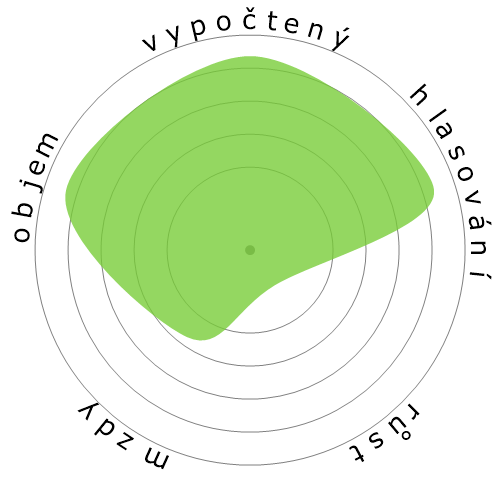Učitelé středních škol, kromě speciálního a odborného/technického vzdělávání
Kam byste chtěli jít dál?
Nebo prozkoumejte tuto profesi podrobněji...


Co tato sněhová vločka ukazuje?
Co je to?
Práce hodnotíme podle čtyř faktorů. Jsou to:
- Pravděpodobnost automatizace
- Růst pracovních míst
- Mzdy
- Počet dostupných pozic
To jsou některé klíčové věci, o kterých byste měli přemýšlet při hledání práce.
Lidé také zobrazili
Vypočítané riziko automatizace
Minimální riziko (0-20%): Profese v této kategorii mají nízkou pravděpodobnost automatizace, protože obvykle vyžadují složité řešení problémů, kreativitu, silné mezilidské dovednosti a vysokou míru manuální zručnosti. Tyto pracovní pozice často zahrnují složité pohyby rukou a přesnou koordinaci, což činí replikaci požadovaných úkolů stroji obtížnou.
Další informace o tom, co tento skóre je a jak se vypočítává, jsou k dispozici zde.
Anketa uživatelů
Naši návštěvníci hlasovali, že je malá šance, že tato profese bude automatizována. Toto hodnocení je dále podpořeno vypočítanou úrovní rizika automatizace, která odhaduje 16% šanci na automatizaci.
Jaký si myslíte, že je riziko automatizace?
Jaká je pravděpodobnost, že Učitelé středních škol, kromě speciálního a odborného/technického vzdělávání bude během příštích 20 let nahrazen roboty nebo umělou inteligencí?
Nálada
Následující graf je zobrazen tam, kde je dostatek hlasů k vytvoření smysluplných dat. Zobrazuje výsledky uživatelských anket v průběhu času a poskytuje jasný přehled o trendech nálad.
Nálada v průběhu času (ročně)
Růst
Očekává se, že počet pracovních míst pro 'Secondary School Teachers, Except Special and Career/Technical Education' poklesne 0,6% do roku 2033
Celkové zaměstnanost a odhadované pracovní nabídky
Aktualizované projekce jsou splatné 09-2025.
Mzdy
V 2023 byla mediánová roční mzda pro 'Secondary School Teachers, Except Special and Career/Technical Education' 65 220 $, což je 31 $ za hodinu.
'Secondary School Teachers, Except Special and Career/Technical Education' byli placeni o 35,7% více než je národní mediánový plat, který činil 48 060 $
Mzdy v průběhu času
Objem
K 2023 bylo v Spojených státech zaměstnáno 1 045 170 lidí na pozici 'Secondary School Teachers, Except Special and Career/Technical Education'.
Tohle představuje kolem 0,7% zaměstnané pracovní síly po celé zemi.
Jinými slovy, přibližně 1 z 145 lidí je zaměstnán jako 'Secondary School Teachers, Except Special and Career/Technical Education'.
Popis práce
Vyučujte jeden nebo více předmětů studentům na střední škole.
SOC Code: 25-2031.00
Komentáře (22)
Odpovědět na komentář